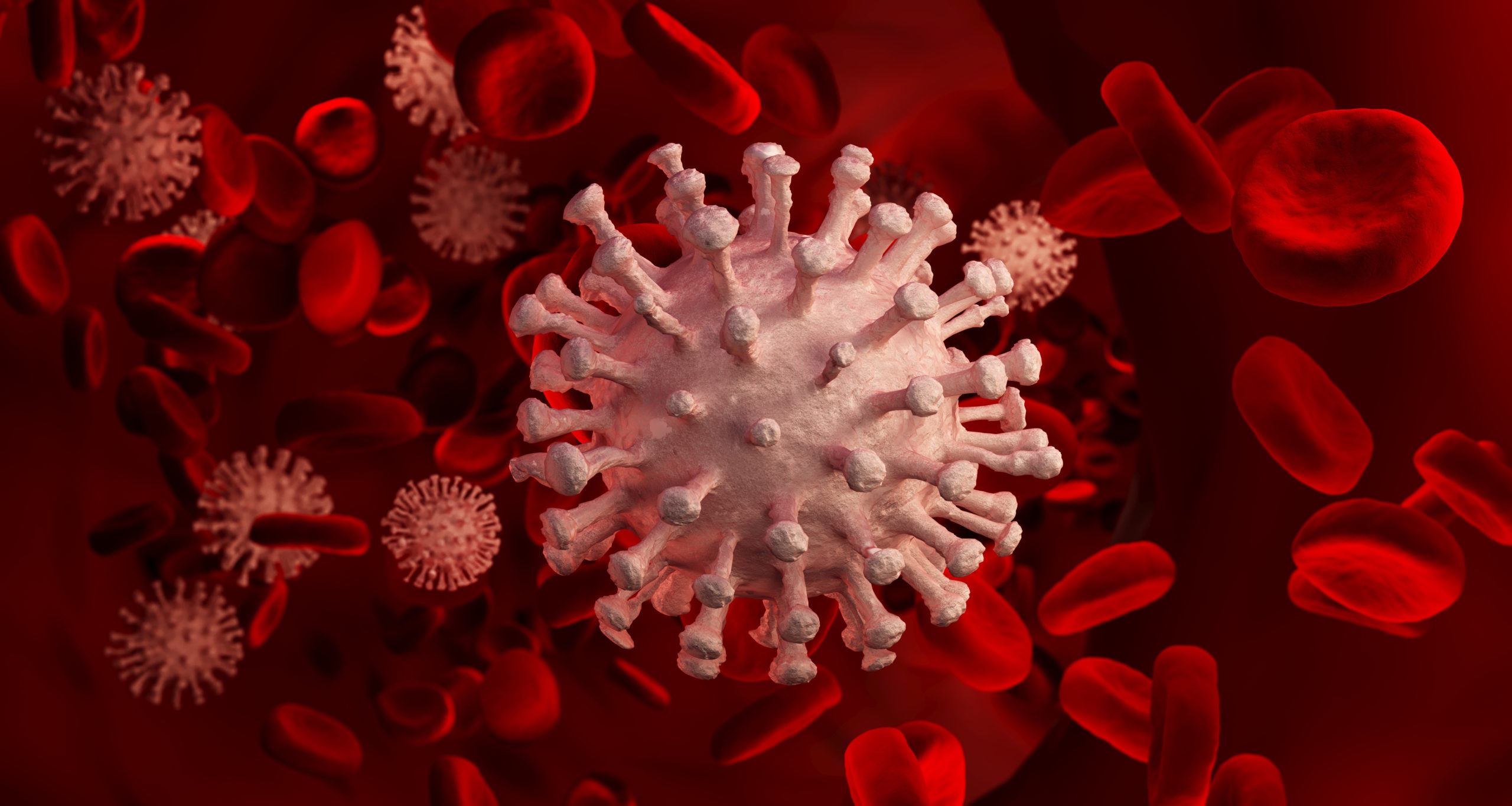Bridging The Gap

SPARK team launches clinical COVID-19 biomarker study
March 24, 2021
While much of the focus during the pandemic has been on developing vaccines and therapeutics, a diverse team led by SPARK staff is looking at COVID-19 from a different angle – characterizing markers during COVID-19 disease to better treat patients. The team is currently recruiting patients and healthy volunteers for a clinical study to measure cardiovascular as well as immune biomarkers.
The study is focusing on the renin-angiotensin system, a protective cardiovascular pathway that is tied to SARS-CoV-2 infection. The RAS pathway regulates blood pressure and vasculature, and SARS-CoV-2 infection causes an imbalance in the system when it enters the cell via the ACE2 receptor. The RAS imbalance is a complicated process that begins with loss of ACE2 activity upon SARS-CoV-2 entry into cells. “The ACE2 receptor, co-opted by the virus to enter cells, converts angiotensin II into angiotensin-(1-7) and this receptor is destroyed upon viral entry,” said Dr. Kevin Grimes, SPARK co-director and the study’s principal investigator.
Loss of ACE2 leads to a decrease in angiotensin-1-7 (Ang 1-7) and an increase in Ang II, kicking off a positive feedback loop of inflammation, vasoconstriction, thrombosis, fluid leak, fibrosis, acute respiratory distress syndrome (ARDS), and myocarditis.
“Many of the adverse effects seen in COVID-19 might be explained by an imbalance in the levels of angiotensin II and angiotensin-(1-7),” Dr. Grimes said. “Angiotensin II causes vasoconstriction, release of inflammatory cytokines, thrombosis, damage to the blood vessels, and fibrosis. Angiotensin-(1-7) has exactly the opposite effects and could be protective.”
By characterizing the cardiovascular markers in the RAS pathway, the team hopes to better predict the clinical course of COVID-19 and predict which patients are likely to get worse, help guide treatments for patients, and aid in developing new therapies for patients. The team will measure levels of proteins – the enzymes ACE and ACE2 – and peptides – Ang II and Ang 1-7 – in the RAS pathway.
The researchers undertaking this effort represent a diverse field, just like many SPARK projects. Led by Dr. Grimes, the team includes SPARK Director of Drug Discovery Innovation Dr. Rieko Yajima and collaboration with groups in and outside of Stanford. Immune markers will be handled by Stanford School of Medicine’s Human Immune Monitoring Center (HIMC), and a team at Wake Forest University will analyze the cardiovascular biomarkers. The group is working closely with the Clinical and Translational Research Unit (CTRU) at Stanford Medicine. The study is funded by Stanford ChEM-H and the University of California Office of the President.
The team hypothesizes that increasing activation of the protective RAS will reduce morbidity caused by inflammation and dysfunction of the lungs and heart respectively in patients with COVID-19 infection. ARDS and cardiac dysfunction are the two leading causes of mortality in COVID-19.
“We want to focus on pathways that damage the cardiovascular system in COVID-19, which we think mediate much of the severe illness caused by the coronavirus. Dysfunction in these pathways can result in many of the pathophysiological effects of the illness, and this study can help us understand how the early steps of COVID can go wrong,” Dr. Yajima said.
In fact, Dr. Grimes and Dr. Yajima are working on repurposing two compounds to treat ARDS and cardiac distress during COVID-19 infection, including treating patients with Ang 1-7 itself.
They are also looking at repurposing ulinastatin, a serine protease inhibitor that is approved to treat pancreatitis and sepsis in Asian countries. Clinical trials in ARDS patients have shown a nearly 50% reduction in mortality as well as reduction in inflammatory cytokines. In preclinical studies, ulinastatin restores ACE2 and Ang 1-7 levels, decreases levels of p38 MAPK, and decreases inflammation. In preclinical studies, Ang 1-7 similarly reduces inflammatory cytokines and lung injury.
COVID-19 infection is associated with extensive activation of the immune system, with increased circulating levels of cytokines, interleukins, and G-CSF. The biomarker study will also look at immune biomarkers to characterize the role of the immune system in COVID-19 and correlate its activation with perturbation of the RAS pathway.
“There is a great deal of cross talk between the renin-angiotensin system and the immune system,” Dr. Grimes said. “I hope to understand if patients with COVID-19 develop higher levels of angiotensin II and lower levels of angiotensin-(1-7), and whether such an imbalance correlates with elevated levels of inflammatory cytokines.”
The group is recruiting a total of 90 participants, both COVID-19 patients and healthy controls. A blood sample will be taken from each participant as close to the beginning of infection as possible, to get a baseline measurement of the cardiovascular and immune biomarkers. This is where the CTRU comes in handy.
The CTRU is an ambulatory and laboratory services research center at Stanford Medicine that offers direct, multi-disciplinary research support to groups at Stanford undertaking clinical or translational studies. This could include bedside, phlebotomy, dietary, laboratory, and biobanking services. To respond to the COVID-19 pandemic, CTRU set up an outpatient tent outside the hospital for COVID-19 testing, and patients referred to that site could be easily recruited into clinical studies. Phlebotomists draw blood on site, and blood is collected in CTRU’s biobank.
Dr. Grimes said, “Erica Crenshaw, our Clinical Research Coordinator, and colleagues at CTRU have been invaluable in initiating the study. We are extremely fortunate to have a world-class Human Immune Monitoring Center that can perform the immunologic testing. And we have identified an outstanding facility at Wake Forest University that can perform the cardiovascular biomarker assays.”
This study is supported by funds from the University of California (grant R00RG3058) and Stanford University’s Innovative Medicines Accelerator.
